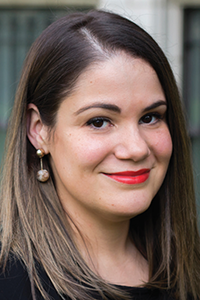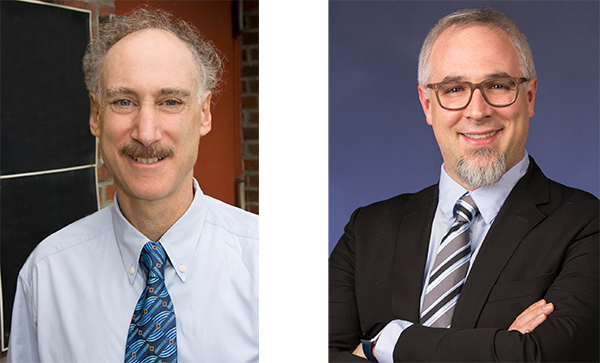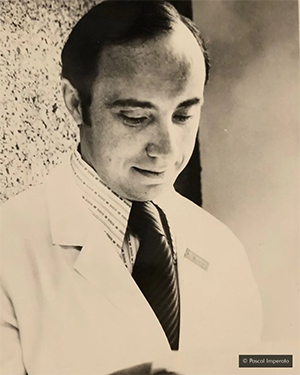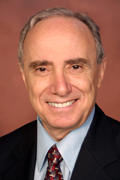Featured Stories
Hispanic Heritage Month Feature: A Look at Dr. Camacho-Rivera’s Incredible First Year!
 Just a short year ago, we had the distinct privilege of welcoming Marlene Camacho-Rivera, ScD, MS, MPH, to SUNY Downstate who joined the School of Public Health as Assistant Professor in the Community Health Sciences Department. Born and raised
in Brooklyn, the daughter of Dominican and Puerto Rican immigrants, and a proud product
of the New York City Public School System—Dr. Camacho-Rivera’s distinguished scholarship
and MPH training began at Tufts University, and she continued with her studies through
completion at Harvard University’s T.H. Chan School of Public Health. She later pursued
post-doctoral training in cancer epidemiology at the Feinstein Institute for Medical
Research where she carved out her investigative interests. Just a short year ago, we had the distinct privilege of welcoming Marlene Camacho-Rivera, ScD, MS, MPH, to SUNY Downstate who joined the School of Public Health as Assistant Professor in the Community Health Sciences Department. Born and raised
in Brooklyn, the daughter of Dominican and Puerto Rican immigrants, and a proud product
of the New York City Public School System—Dr. Camacho-Rivera’s distinguished scholarship
and MPH training began at Tufts University, and she continued with her studies through
completion at Harvard University’s T.H. Chan School of Public Health. She later pursued
post-doctoral training in cancer epidemiology at the Feinstein Institute for Medical
Research where she carved out her investigative interests.
A social epidemiologist, Dr. Camacho-Rivera’s research portfolio has been steeped
in understanding and defining the roles of structural and social determinants of health.
The objective of her work is to reduce health disparities and improve health outcomes
among some of the most vulnerable, at-risk brown and black communities.
Today, her research interests center around three primary areas:
- Elucidating social determinants of racial/ethnic disparities in chronic diseases such
as asthma, cardiovascular diseases, and cancer;
- Exploring within group heterogeneity the prevention and treatment of chronic disease
outcomes among racial/ethnic groups;
- Developing culturally-tailored, patient-centered interventions to improve chronic
disease self-management among urban minorities.
In the brief time she has been at Downstate, she has immersed herself in critical
research—publishing and presenting several projects.
Please see the list of some of her most prominent works, below:
The significance and critical nature of her growing body of work, to-date, has led
her to countless fellowships from nationally-acclaimed organizations including, but
not limited to, the National Hispanic Health Foundation, the Patient Centered Outcomes
Research Institute (PCORI), the National Heart, Lung, and Blood Institute, the Association
of American Medical Colleges, and the Hispanic Federation of New York. In addition
to her research projects being endorsed by organizations like the National Cancer
Institute, she has published more than 40 articles and book chapters, and serves as
a sitting-editorial board member for PLOS ONE, Frontiers in Public Health, and BMC Public Health.

As though her professional contributions weren’t impressive enough, Dr. Camacho-Rivera’s
one-year milestone at Downstate has culminated in one of the greatest academic honors—acceptance by the Center for Scientific Review (CSR) at the National Institutes of Health (NIH) to serve as a reviewer in the Early Career Reviewer Program! In this capacity, Dr. Camacho-Rivera will be accompanied by trailblazing researchers
around the country to review grant applications across a broad spectrum of research
topics related to social, epidemiology, economics, psychology, sociology, and demography.
It goes without saying that Dr. Camacho-Rivera has been an undeniable value-add to
Downstate, an asset to the pursuit of health equity, and one whose work will continue
to spur meaningful advancements for public health—in the classrooms at Downstate,
within the communities we serve, and around the globe.
Fighting Stigma with Transparency: World Alzheimer’s Day

The month of September is observed as World Alzheimer’s Month (WAM) with September
21st set as the day marking the month’s pinnacle. WAM unites Alzheimer’s associations
with common messaging with this year’s theme being, “Let’s Talk about Dementia.”
 Carl I. Cohen, M.D., Michael Reinhardt, M.D Carl I. Cohen, M.D., Michael Reinhardt, M.D
Downstate is privileged to be the site of a Center for Excellence for Alzheimer’s
Disease, funded in part by the New York State Department of Health. One of only ten
sites in New York State with this designation, our Center is led by Carl I. Cohen, M.D., Distinguished Service Professor and Director of Geriatric Psychiatry, and Michael Reinhardt, M.D., Assistant Professor and Clinical Assistant Dean.
To observe WAM, Dr. Cohen shared his experience with reaching out to caregivers and
patients via telehealth in the September edition of Psychiatric Times. Below are excerpts from his first-person account, “Treating Dementia Patients in the Time of COVID”:
“[The patient] looks around, bewildered. He hears my voice but cannot determine from
where it is coming. He cannot focus on the computer screen in front of him and does
not know what is required of him. A voice from the side says, ’Dad there’s the doctor.
Didn’t you want to ask him something?’ The patient stares blankly and asks, “Where?
I don’t see him.”
“Early claims that telehealth is ‘virtually perfect’ do not fit well with our experience
with dementia patients. It has been more than 5 months since our team saw our dementia
patients in-person. Some we will never see again, as they have succumbed to the coronavirus.
Others survived the battle with the virus, but their brains were injured on the battlefield,
and their dementia progressed to a more severe stage of deterioration.”
Telehealth is better than nothing, says Dr. Cohen, but it is not the same as pre-COVID-19
care. From assessing the behavior, function, or cognitive status of patients, to deciphering
whether technology is creating surplus deficits, or even whether patients have access
to the right equipment to benefit from telehealth, physicians need to be even more
vigilant in their approach to care of these vulnerable patients. He worries that the
pandemic has eviscerated vitally important community support programs and adversely
affected caregivers.
For now, he says, “We plod on, honing our telehealth skills and maximizing its benefits.”
To learn more about Downstate’s Center for Excellence for Alzheimer’s Disease.
Dr. Pascal Imperato Details Experience from the 1976 Swine Flu Pandemic with BBC News

In exciting news, Pascal James Imperato, M.D., MPH&TM, MACP, Founding Dean, Dean Emeritus, and Distinguished Service Professor in the School of Public Health was featured in an exclusive BBC News Interview where he detailed his remarkable
leadership during the 1976 Swine Influenza Pandemic.
As some of you may know, Dr. Imperato spent an impressive six years as the Director
of the Bureau of Infectious Disease Control and Principal Epidemiologist, First Deputy
Commissioner of Health, and Director of the department’s Residency Training Program
in Public Health. He also served as Chair of the New York City Swine Influenza Immunization
Task Force for the New York City Department of Health (NYCDOH), and in Mayor Abraham
D. Beame's mayoral administration, where he was appointed as Commissioner of Health
and Acting Health Services Administrator of New York City.

During his tenure at NYCDOH, the 1976 swine flu pandemic posed a threat so great,
that President Gerald Ford took extraordinary measures to protect citizens across
the country and safeguard national public health. President Ford mandated a mass vaccination
in the United States.

As Dr. Imperato was then the sitting-Deputy Health Commissioner as well as Chair for
the New York City Swine Influenza Immunization Task Force, he was faced with the unprecedented
task of developing and launching the program for mass vaccination in the City. Initially,
Mayor Beame was tapped to get the first shot that was to be accompanied by a photo
opportunity to allay public concerns; but when the Mayor backed out, Dr. Imperato
volunteered without hesitation. It was a move that would prove to be successful early
on as it spurred great turnout across the City.
Dr. Imperato’s experience is an incredible tale of intrigue and insight, and how things
played out throughout this national crisis can most certainly be revisited for the
invaluable lessons it imparted and for what we may need to prepare for as we manage
the ongoing COVID-19 pandemic. I’m beyond grateful for Dr. Imperato’s service, for
his unparalleled leadership through those uncertain times, and for his guidance through
the trials we are experiencing today.
CLICK HERE to READ FULL ARTICLE!
|